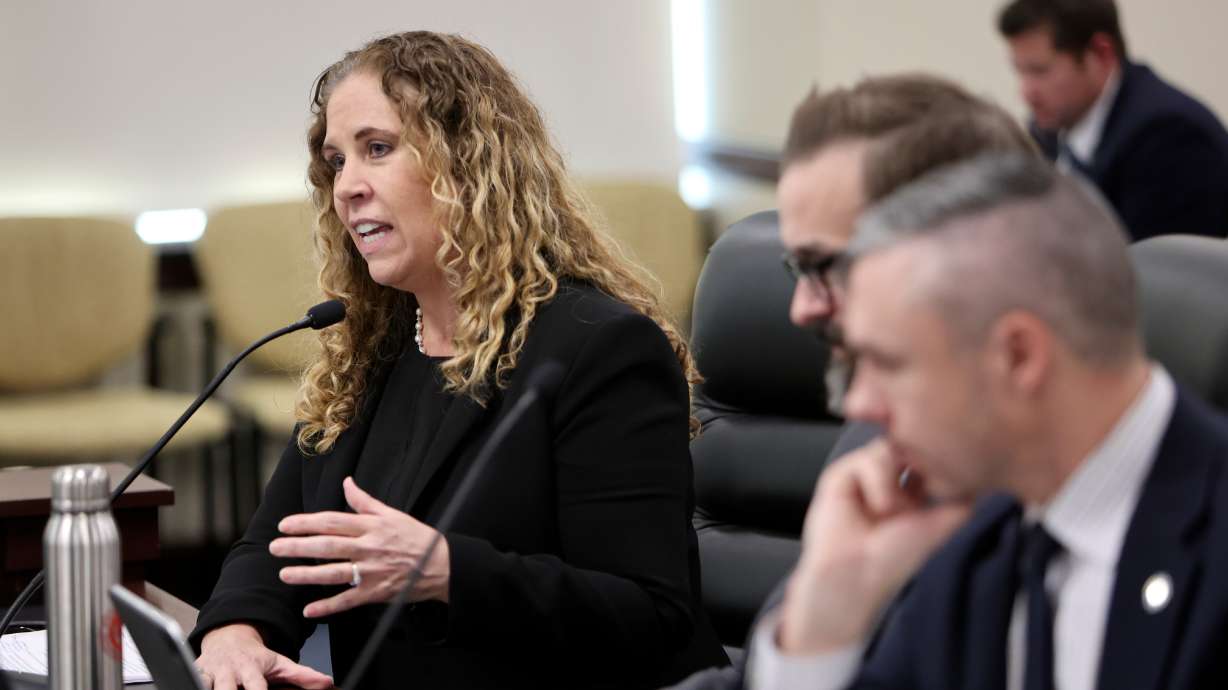Estimated read time: 4-5 minutes
- Utah lawmakers have started debate over the process of trimming and reallocating $60.5 million in university funding.
- The cuts each of the eight institutions face represent 10% of their instructional budgets, funds that would be redistributed internally.
- HB265, still focus of debate, outlines the guidelines for cutting and reallocating funds.
SALT LAKE CITY — Utah lawmakers have started the debate that's to culminate in spending cuts of some $60.5 million at Utah's eight public universities then reallocation of that money elsewhere within the institutions.
Trimming of funding at the University of Utah, Utah State University and Utah's six other public degree-granting schools has been a big focus of debate, and lawmakers on Thursday launched initial public discussions about how the process should proceed. It's a priority for the Legislature's GOP majority this session, touted as a means of refocusing funding the institutions get to where it has most impact.
Setting the criteria to guide spending cuts is a complicated exercise, however, and Geoffrey Landward, commissioner of the Utah System of Higher Education, said he was "encouraged" by the discussion at Thursday's meeting of the Higher Education Appropriations Subcommittee. The guidelines the eight universities will follow in cutting and reallocating the $60.5 million are outlined in HB265, a focus of continued deliberation.
The House and Senate members who spoke out Thursday "recognize that this is a complicated issue, and it requires, frankly, a complicated, nuanced approach, and that's what we're trying to put together," Landward said after the meeting. He said it was the first time lawmakers had debated the issue in a public setting.

The $60.5 million to be cut represents 10% of the instructional budgets of the eight institutions, not their entire budgets. The University of Utah, as the largest institution, would have to trim the most, $19.6 million, followed by $12.6 million for Utah State University, $8.9 million for Utah Valley University and $6.7 million for Weber State University. The other institutions and the amounts they'd have to trim are Salt Lake Community College, $5.2 million; Southern Utah University, $3.2 million; Utah Tech University, $2.6 million; and Snow College, $1.7 million.
The schools wouldn't lose the funds. The universities will funnel the funds to other areas, per guidelines to be outlined in HB265. "Where you cut from is up to you, but it has to be within this framework that's been put in legislation, and then where you reinvest to is the same thing," said Landward. "So they have to put together a reinvestment plan that outlines where the money will come from and where the money will go."
Among the many possible parameters the institutions will follow in deciding where to scale back and then reallocate funding are job needs in the broader community, program popularity, wages graduates from the varied programs earn on entering the job market and much more.
At Thursday's meetings, the lawmakers on hand expressed a range of opinions.
Sen. John Johnson, R-North Ogden, mentioned the growing field of artificial intelligence. "How are we preparing our students to participate in that?" he said. "I think that's something we've got to think about too."
Sen. Kathleen Riebe, D-Cottonwood Heights, said she is "disheartened" at the notion of cutting university spending and cautioned against focusing too much on "occupational optimization and efficiency rates" as the debate unfolds. "Your rugby clubs, your art programs, the things that build our mental health and bring us together — that's why I want to go to a university," she said. The state's universities, she went on, "should be standing up on a hill with a bright, shining light, welcoming all sorts of ideas."
Landward said employers surveyed about how Utah's college graduates are doing reported that they have the desired technical skills. "But what they're lacking are durable skills. What they're lacking are critical thinking, communication, the ability to collaborate and work for others," he said.
Rep. Karen Peterson, R-Clinton, stressed the importance of striking a balance in allocating university funding. "It really is about making every dollar count in our system and making opportunities count for our students in a way that provides them both general and specific education," she said.
Sen. Evan Vickers, R-Cedar City, who works in health care, indicated that a solid science education isn't enough for the workers he needs. "Working with the public, I have to have people that have the critical writing, critical thinking and being able to make decisions and interact with people on a regular basis," he said.
Landward said lawmakers will have a lot to balance in setting guidelines for trimming of funds, same for the universities when they figure out where to cut. "The debate is, how do we define value for a program or a degree? When we say this program is valuable, well, what does that mean? How do we get to that decision?" he said. "I think that's the question they're grappling with."
With a finalized version of HB265, Landward said, each of the eight impacted institutions would come up with a plan to cut and reallocate the required funds. Then the Utah System of Higher Education Board would review the plans, which would also face scrutiny from lawmakers, perhaps by this coming summer. The cuts would be spread over three years, through the 2027-2028 fiscal year.










